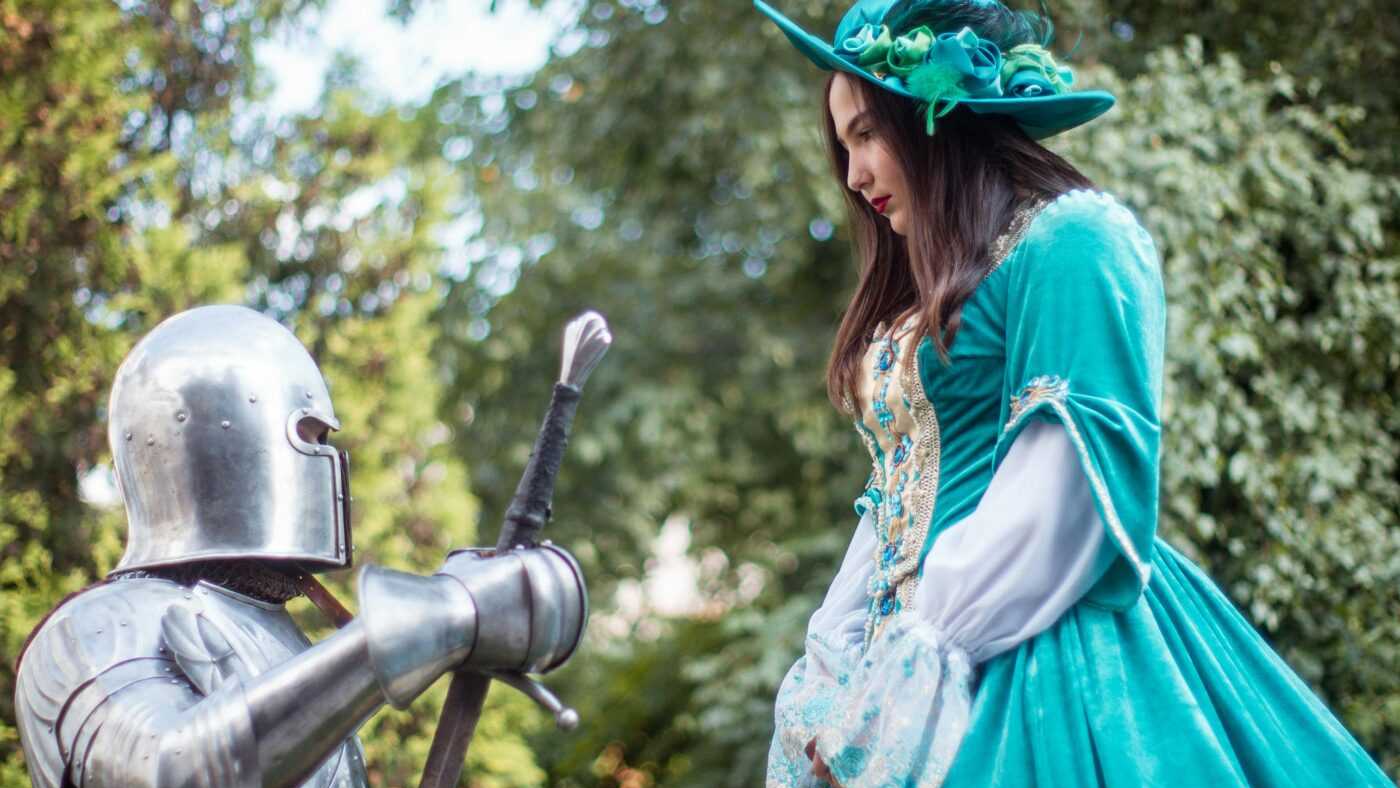Science
Hidden in Plain Sight: Are “Planets” Actually Ancient Relics of the Big Bang?
27 February 2026

Honor – a set of qualities and attitudes that allow entire communities to survive, protect superior and timeless values, arouse contempt for death, and enable superhuman deeds. If misunderstood, they lead to a meaningless end or revenge that takes on a life of its own.
In the comedy The Marriage by Nikolai Gogol, a marriageable girl who is being matched expresses concerns about whether it is worth getting rid of several candidates for a husband at once, because eventually they may get offended. However, Kochkaryov, the matchmaker, prompting her to make this authoritative decision, responds:
“What does it matter if they are angry? If any harm comes of it, then it’s a different thing, but the thing that could happen in this case would be one of them spitting in your face – that’s all. So what does it matter if they do it? It would be different if there were no handkerchief nearby, but you have one in your pocket.”
His attitude was so far from honorable that it aroused and has continued to arouse laughter up to the present day. Remaining in imperial Russia, however, it was the concept of honor that became overly sensitive, like Kochkaryov’s concern: “If any harm would come of it, then it’s a different thing…” Because insult to somebody’s honor was a particularly prevalent reason for not infrequently deadly duels.
Alexander Pushkin and Mikhail Lermontov, who, in their greatest works, tangled their heroes in duels to death, for example, both died in this way. The first of the poets lost his life trying to counter the rumors and intrigues concerning the fidelity of his beautiful wife. The second was shot by a tsarist officer deposed for card cheating, whom the artist had mocked in front of ladies.

As Yuri Lotman, the Russian literary theorist, writes:
“A duel is a form of combat between two people that occurs according to established rules to restore honor and remove from the offended party the stain of shame inflicted by an insult. […] It represents a specific procedure […] and cannot be understood without clearly contextualizing the concept of honor within the broader ethical system of the Russian Europeanized post-Petrine nobility. Of course, when seen from a principled position that rejects this understanding of honor, the duel loses its meaning and becomes ritualized murder.”
Duels of honor could decimate the officer corps, yet it was more unthinkable that they would elude state control. That is why successive tsars tried to ban it. As it eventually turned out, to no effect. As far back as the 18th century, Tsar Peter the Great issued a ban on the practice under penalty of gallows and confiscation of property of all participants of the duel, from the duelers, to the seconds, and the witnesses. In the following century, Nicholas I considered duels of honor barbaric, but he only threatened the participating officers with demotion. Alexander III legalized officers’ duels in the late 19th century.
It was stronger than the empire to defend such understood honor, although it was slowly becoming unclear whether honor was the real reason or an insignificant pretext here.
We recommend: Family Roots: A Wellspring of Self-Assurance
Then, as in earlier and later eras, honor was not for everyone. A fight between the feuding representatives of the commoners in an inn could not be considered a duel in defense of honor. The Polish Code of Honor by Władysław Boziewicz being in force in the interwar Republic of Poland precisely indicated who could not challenge to a duel and from whom satisfaction could not be expected, i.e. people excluded from the principles of honorary demeanor. In Article 8, one can find 28 cases of those who cannot participate in a duel.
Among them were: a deserter from the Polish army; a coward on the battlefield or a duel; a denouncer or a traitor; a homosexual; accepting support from women who are not his closest relatives; compromising the honor of women with indiscretion; a host violating the laws of hospitality and insulting guests in his own home.
We recommend: The Magic of Biography. Why Are We Fascinated by Other People’s Lives?
In the Middle Ages, knighthood attributed this domain to its estate of the realm, even though Christianity proved the possession of a soul by every human, making everyone equal before God. The knights, however, were able to create their own “code” of honor. It was not written down anywhere. The qualities and duties, as well as the threats to honor, were transmitted orally, perpetuating the code of conduct and the lines that must not be crossed.
The basic virtues of the knightly ethos, which shaped honor, included: Loyalty, which was understood not only as allegiance to one’s sovereign but also as devotion to the principles that one is supposed to follow in life, whereby fidelity to the word was of particular importance. Of course, it was about a word given to those of equal estate and birth.
Inherent in the knight’s life was piety, ultimately he lived and fought for the glory of God. Masculinity was also indispensable in this struggle, the knight in defense of his ideals did not retreat from any danger. Prudence allowed him to reach his goal without breaking the knightly ethos, while courtesy dictated him to observe the rules and social forms in force. The knight lived and fought not to accumulate material goods.
On the contrary, he was generous, considerate of the needy, and open-handed. He was honest and respected the ethics of a duel when he entered the lists. He also recognized the merits of other knights who followed the path of the virtues mentioned. The knight is also a man who is particularly sensitive to the beauty and favor of women. After all, the thought of his chosen one often inspired him to stand bravely in battle.
Many of the principles of honor of the European knight can be considered universal to this estate. Despite the remoteness of the two different worlds, they had much in common with the ethos of the Japanese samurai. The Bushido code, that is, the way of life of a Japanese warrior, was also based on dedication to the cause and humility toward a superior, although in this case sacrifice not infrequently went even further.
It was natural that for deviating from absolute commitment to the lord, the samurai would administer himself the punishment of suicide. Honesty was also a matter of honor because a warrior could never be a cheat. He should be guided by a straight path from thought to action, just as his feelings, based on the balance of spirit, were simple and orderly. The samurai also set himself a point of honor to develop. He had to keep getting better and better. Every regression was considered a significant failure. For a European knight, similarly as for a Japanese warrior, courage and fortitude in defense of one’s convictions was a matter of honor.

Regardless of latitude, the inherent feature of knightly honor was revenge for its offense. In the 19th century, Arthur Schopenhauer opposed it. The German philosopher believed that such understood honor was based on someone else’s opinion about our value and that its defense was not a struggle for real dignity, but retaliation through revenge or a duel and saving a mere semblance of dignity, whether the opponent was right or not. According to the philosopher, it is a false way of understanding honor and an equally false concept of erasing someone’s insult.
Ancient Stoics, on the other hand, distinguished honor from spotless reputation. As Dr. Teresa Zawojska writes, “The stoic incarnation of a man of honor is a sage-philosopher; he disregards spotless reputation because the external violation of good opinion does not harm the essence of honor that lies within man.”
Does a man not have to defend his honor and reputation at all? In St. Thomas Aquinas’ opinion, “The daring of the railing reviler should be checked with moderation, i.e. as a duty of charity, and not through lust for one’s honor.”
Moving smoothly through the eras, this context brings to mind the incident from the 1930s, when the ulan Walenty Kozioł at a dance in the village of Aligawa near Łańcut, got into a disagreement with the local farmhands. When one of the civilians provocatively and carelessly expressed himself in a vulgar way about the lancers, the soldier pulled out a saber and slightly cut the ear of the defamer.
Nowadays, he could face serious consequences for such an act. At that time, however, the result of this incident was… official praise granted by the commander, Col. Kazimierz Plisowski, for the defense of the regiment’s honor.
The application of proportionate measures to the situation was a motivation for the already mentioned Boziewicz Code. In the introduction, we read that the Code does not intend to cultivate duels in the medieval sense, but it gives rules to a phenomenon that occurs and cannot be abolished with a penalty of arrest or a fine. Article 311 describes grave offenses against a duel of honor. These include: “attacking a visibly injured opponent or one who has fallen,” and “insulting an opponent verbally or with gestures.”
Does someone attach importance to such “details” today? The media tries to give the appearance of a fight for honor to official shows, such as cage fighting, creating a story of opponents falling out on the ground. They often insult each other at press conferences, reveal issues from the private lives of their rivals, and finally, there are fights during presentations or meetings with journalists.
The pseudo-sports struggle becomes a quasi-duel of honor or rather its farce. The fights promote the principles of dark alley brawls, which come to be a common norm. A knocked-out opponent cannot recover and be able to continue the fight. Lying, semi-conscious, he gets a series of punches to “get him done.” And all to the amusement of the rabble, looking for new, off-limits experiences.
The “honor” itself, so willingly put into posters, advertising similar events, has become only an element of the show, a shady deal, on which one can make good money.
Has the concept of “being honorable” lost its meaning along with its elitism, or in the traditional sense has it become archaic? On the contrary, Prof. Henryk Skolimowski, the Polish philosopher, recognized honor as one of the main traits of Polish character. Sometimes it is an honor, which is “intransigent and in its intransigence – wonderful. Sometimes it is an honor that is ridiculous and ridiculed, for it is unmindful of practical consequences.”
However, as Polish ethicist Dr. Antonina Sebesta recalls, “The creation of a hierarchy of values in which one’s own life is not the most important, apart from deplorable cases, has mattered greatly for the survival of many communities, including conquered nations.
The slogan “God, Honor, Fatherland” was not only a writing on the banner, it had a specific content, it meant heroism, devotion, contempt for death, faithfulness, and boundless dedication to the cause.”
Honor based on generally accepted moral principles cannot be taken away. However, one can lose it, and get rid of it at one’s request, by breaking the aforementioned rules. A man of honor may indeed at times be impractical, perhaps even at odds with reason, but they shy away from gain earned through servility and sucking up. This is what he establishes his credibility on.
Therefore, honor is, as Prof. Skolimowski writes, “A beautiful feature in our contemporary world, so dead tired, used up, spat out. […] To have no time for honor is to have no time for humanity that is within each of us.”
Translation: Marcin Brański
Polish version: Honor. Czy dzisiaj ma jeszcze znaczenie?
Science
27 February 2026



Zmień tryb na ciemny